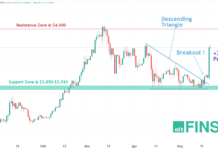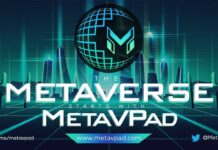By Grace Rachmany
Why has democracy left us more divided than ever? As we in the cryptocurrency industry think about staking tokens, it’s important to recognize how we got where we are today, and to set up our new systems so they won’t repeat the mistakes of the past.
Least of the evils
“Democracy is the worst form of government, except for all the rest,” according to Winston Churchill. I want to put to rest the idea that democracy is the best form of government.
Representational democracy, that is the democratic system we use now, was invented thousands of years ago. Look around you. What systems are you using that are the same as the ones that were used thousands of years ago? Decades ago? Years ago?
“iPhone 1 is the worst mobile phone except for all the rest,” said nobody. Why do we have an iPhone 10? Because we kept developing technology.
In combination, mobile communications, distributed ledger technology, biometric identification, and big data represent an opportunity to create completely new forms of governance that we never fathomed before.
Binary voting causes divisiveness
In our current form of democracy, almost all voting is binary. You can vote yes or no on a referendum. You can vote for the right or the left party. Even in parliamentary democracies, the one-person-one-vote system requires determinism. You must absolutely prefer one party over all the rest. Voting is devoid of nuance.
As a result, much of our political debate is divisive. If you voted for reds and I’m a blue, apparently something is wrong with you. We don’t need to discuss whether some aspects of red appeal to us. It’s just “red or blue”. There’s no point in discussing a nuance because my vote isn’t nuanced.
A completely different conversation
Because we are so accustomed to one-person-one-vote, we often don’t consider different ideas for voting. Let’s start with how many proposals are on the table. If there are a minimum of three options, the conversation is different. Let’s take one of the most important issues for humans: peace. Peace treaties are one of the items often left to a referendum. Yet, the people only get one option. Yes or no. Why aren’t there three or four possible peace agreements for people to vote on? (Obviously, it’s because of the ineffectiveness of the negotiation process, which I’ll discuss in a later post on consensus. For now, let’s stick with voting.) Creating a system in which a minimum of three proposals need to be on the table before a vote creates a demand for creativity, and it also creates a richer conversation prior to the vote. It’s not longer us-versus-them, but a choice from a variety of options.
Once you have more than one proposal on the table, voting can take forms that, again, create different types of conversations prior to the voting. Here are some examples that technology now makes possible:
- Veto-only. Allowing people to veto anything that is unacceptable is one possibility. For example, in a peace process where lives are at stake, you could say “veto the ones you can’t live with”. A veto would represent “some people are still oppressed”. Because anything is better than war, if you have to veto a proposal, it must be pretty bad. Every person could veto as many proposals as they find horrible, or veto three of five. In other words: one person, multiple votes. You can also see that saying “you can veto the bad solutions” creates a different discussion than “vote for as many as you like”.
- Points to distribute. Instead of one vote, people could have 10 voting points. They could allocate them any way they like. If there are four proposals, they could give even points to every proposal (unlikely), or they could give six to their favorite and four to the one they think is a runner-up. Again, it’s easy to see how this creates a nuanced conversation. “Why only six points and not seven?” is a very different question than “Why not?”
- Ranking is used in some democracies, where people can rank the candidates in order of preference.
- Voting for sections. In one study of the FARC peace agreement, the researchers found there was only one divisive paragraph in the entire agreement. All of the other sections easily passed the majority. However, the referendum ultimately failed because people could only vote yes or no for the proposal in its entirety.
- Staked voting. Different people have different weights of votes. Weighted or staked voting is discussed at length below.
The examples above are just a few ideas of how we could completely overhaul the idea of democracy to provide a richer experience of how voting creates not just different outcomes, but also a different culture of discussing the proposals. Going forward, I expect many other ideas to emerge on how to make better decisions through different representations of voting rights.
Staking as faulty nuance
Staking tokens today are making a step towards providing nuance. Staking tokens allow people to have different weights in their voting. Someone holding more staking tokens can have more votes or more influential votes than someone with fewer staking tokens. In some systems, such as Agur, this can make a lot of sense. Staking tokens are held by experts who can decide how much to stake on a particular decision, and their return on the stake depends on the correctness of their prediction. In a system where tokens can be earned but not bought, this makes sense.
However, in a system where tokens can be purchased, someone with a bad reputation could hold more tokens than someone with a good reputation. Steem is fundamentally flawed in this way. There’s no differentiation between tokens purchased and tokens earned. Furthermore, there’s no cumulative measure of tokens earned; just tokens held. Let me explain.
If you think of my professional reputation, you might represent that as “every dollar I’ve earned in my lifetime”. However, that isn’t the quantity of dollars in my bank account. The number of dollars in my bank account represents some function of what I’ve earned, what I’ve spent, financial decisions I’ve made, and gifts or inheritance. The amount of money in my bank account, in fact, has no correlation to my professional reputation. Similarly, on Steemit, if someone liked your video and you earned Steem, that represents your contribution to the platform’s value. If you buy Steem tokens, that doesn’t represent your reputation in any way. If you spend the reputation tokens, you now have less “reputation”, which makes no sense. It is now possible to design systems that would keep two separate representations of value: lifetime value as a contributor versus value of money in your account.
Now, you might point out that holding tokens creates value for the system. That’s true. Holding stake does make the whole ecosystem more valuable, so there is a different kind of value represented by people who buy and hold a token. In fact, if you think about a content system like Steem, you can see there are numerous types of “value”. Some people produce great content. Some people comment or share. Other people rank content. Being a great curator is a distinct talent, different from being a great commentator or great content creator. Being a great investor is yet another talent. Staking tokens are falling short of providing a real representation of value, creating a system where, in many instances, having more money or having gotten in early is more valuable than truly being awesome.
It’s a step in the right direction, but we’re not there. Most importantly, it’s essential that we create a system of reputation that can’t be bought. Currently, almost all of us live in nation-state situations where power can be bought. There is no such thing as decentralization where power can be bought. Money today is so unevenly distributed that the only way to decentralize power is to detach it from money. We won’t do that overnight, and maybe we won’t do it at all. But currently almost all of the staking tokens in the market can be financially manipulated.
New paradigms for staking
In reality, there are (at least) two aspects to consider in staked voting. The first and most obvious is “skin in the game.” If you own a home in a particular location, you care about the decisions made about that city. If you live in the home you own in that city, you care even more. In some ways, if you are a landlord of a multi-tenant property, you have more “skin in the game” but it might be the wrong kind of skin in the game. You might want zoning laws that deteriorate the quality of life because they allow you to fit more people in an apartment building. In that way, having more property in a location isn’t the same as really living there. Every situation is different, so when you create a weighted voting system based on someone’s stake in a particular system, it’s important to distinguish the type of stake that is most appropriate for getting the outcomes that are best for the system as a whole (or, better yet, for humans as a whole).
The second type of weight to consider in staked voting is expertise. If someone is truly an expert in urban planning or environmental impact, their knowledge might entitle them to more weight when they vote. Right now, we don’t have great paradigms for “expertise”, but in a decentralized system with staking tokens, there would be a record of someone’s voting history. It would be possible to set up a system where their reputation over time is based on the correctness of their decisions. DAOstack and DNN.media both have systems where they are tracking reputation over time based on how much someone’s opinion is respected by other people in the system.
Reputation tracking based on consensus/agreement of others makes sense in some systems, but it doesn’t measure real truth. Ideally, if we were trying to get some type of outcome, let’s say, reduction in pollution, there are objective measures that we can check. It is possible, over time, to know if someone has been correct in voting for proposals that actually improved air pollution. The reputation can be based on results, rather than education and experience.
Conclusions
We are only beginning to scratch the surface of what is possible in distributed organizations when it comes to decision-making. While we have been living with a certain type of democracy for hundreds of years, the system is fundamentally not producing results that represent the majority’s wishes. DAOs have the opportunity today to explore new forms of voting that produce better results for all parties involved.
In the next article, I’ll be discussing consensus and how proposals are created in these organizations.
















